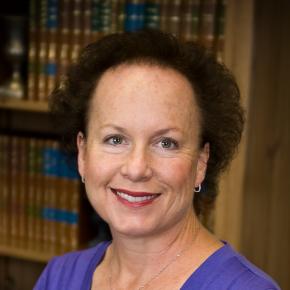Hannah More, born in the 18th century, became an author, social activist, and philanthropist because of her brilliant mind and Christian convictions.
Her fiancé broke off their long engagement at a time when a breach of that sort of promise by a man was taken very seriously. He settled an annual annuity on her, and this gave her the freedom to pursue her interests in a way many women could not. She moved to London, wrote popular books, and moved in elite literary circles before she became a follower of Jesus.
Hannah realized that Christianity was not about performance, but “a turning of the whole mind to God.” This influenced how she spent her time, energy, and talents the rest of her life.
Hannah and her sister pursued many of their activities together. The two were as well read as university professors. They read from a wide variety of literature, including Puritans’ writings and secular philosophers of the time. Hannah read John Newton’s autobiography and attended his church. He advised her, “You have great gifts; now believe in the giver of the gifts and do the work of that righteous judge in the public sphere.” Newton and her friend William Wilberforce encouraged her to retain her relationships in the fashionable world so she could have influence on the rich and powerful.
She was part of the religious Clapham community, which included many leaders in the abolition movement. They influenced her commitment to evangelism and helping the needy with their philosophy that “The Church is the only institution that exists for the benefit of those who are not its members.”
Her writing made her very influential in British culture. She wrote books and tracts on improving social manners and therefore quality of life that became bestsellers. Hannah wrote a response to Thomas Paine’s book The Rights of Man. His book encouraged social change through revolution, and it became popular in England. More wrote equally popular responses to Paine’s argument showing the practical realities that helped readers see the dangerous consequences. She recommended a peaceful way of making important and necessary social changes. Marc Baer, in his book Mere Believers, says that “it can be argued that no one played a more important role in preventing revolution in late eighteenth- and early nineteenth-century Britain than did Hannah More.” More also wrote attacking the French atheist politician whose rhetoric drove Catholic priests into exile to escape violence. And More used the profits of her pamphlet to provide for these exiles.
Hannah and her sister opened a school for the poor at a time when there was no public education and the majority of British citizens were illiterate. The classes met on Sunday, the only day the working people had off. Children were taught to read and write, using the Bible as one of the textbooks. They were taught skills that would help improve their circumstances. Adults were also taught, and job placement services were offered. Within a decade, the sisters opened 16 schools. Hannah continued her direct involvement in the schools for 30 years until she was old and too ill to continue. Three of her schools survived into the 20th century and were models for continuing education.
Hannah encouraged women, and specifically poor women, to get an education to improve their position and wellbeing. She believed that an educated wife was a more suitable companion than a merely ornamental woman. She thought that women could be significant influencers in improving society by getting an education and making wise and moral life choices. British men’s clubs are well known. More endowed clubs for women. Through these clubs, women were encouraged to become self-reliant, taught financial management, and provided services for difficult circumstances.
More was the first woman involved in the organized abolitionist movement. She wrote pamphlets and poetry to advance the abolitionist movement. She helped sponsor the publication of Olaudah Equiano’s autobiography, the account of a former slave. She helped promote the boycott of slave-grown sugar. She believed strongly that God had created all people equally valuable.
Hannah More led an extraordinary life. She had tremendous influence on society and used it to make positive reforms. She was motivated and guided by her Christian convictions.

